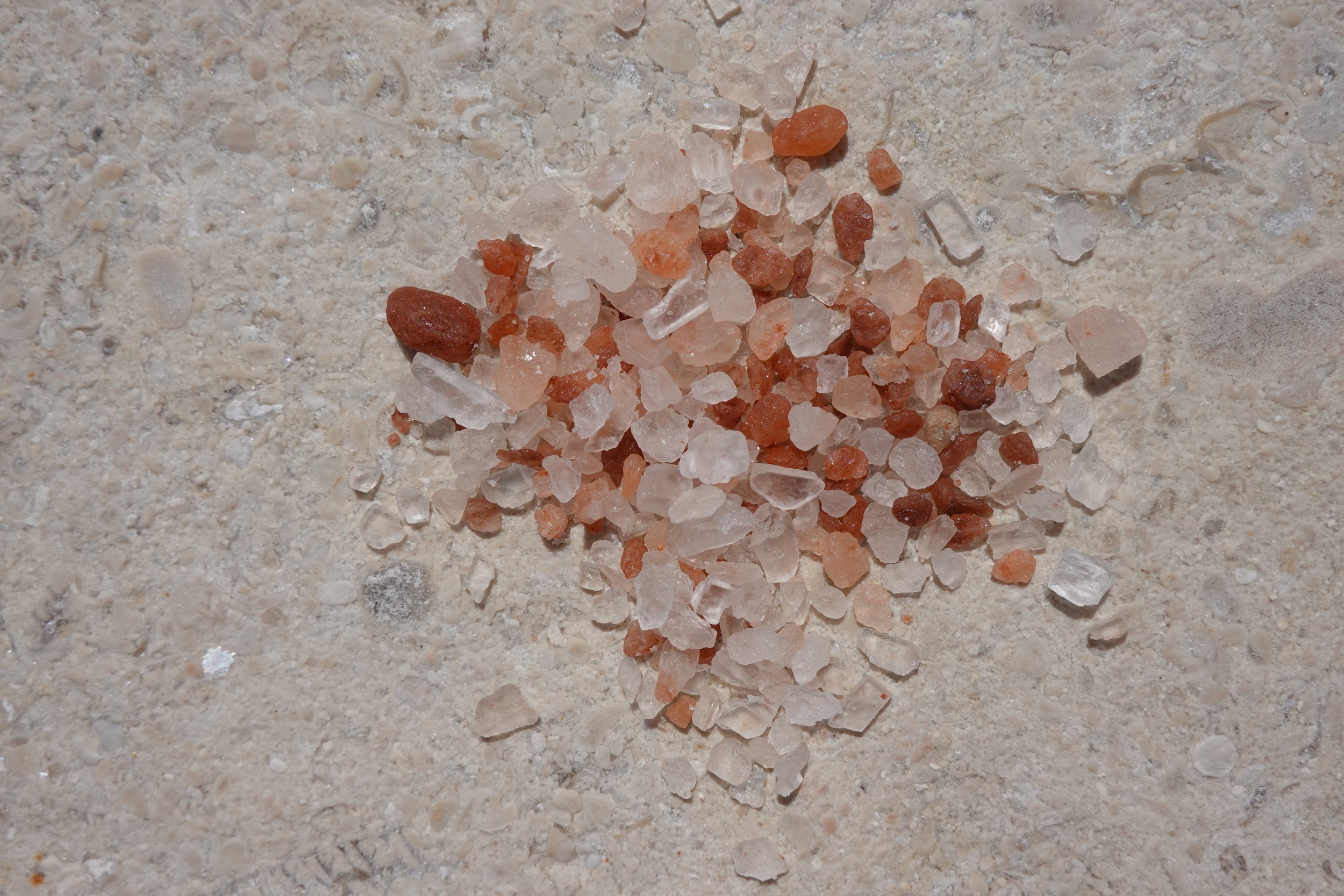
Ingredients Glossary
-
Almond oil, derived from the seeds of the sweet almond tree, is a natural oil containing 62-86% oleic acid, 20-30% linoleic acid & various beneficial fatty acids. Abundant in beta-sitosterol, squalene, and vitamin E, this effective emollient provides skin with a soft, smooth, and conditioned feel.
-
Apricot kernel oil is obtained through a delicate cold-pressing process, similar to extracting oil from dried peach or almond seeds. Externally, it appears as a thick, light yellow liquid with a pleasantly subtle aroma. Positioned as a "premium" oil, it stands out not only in terms of pricing but also in its inherent and diverse beneficial properties. Recognized for its light and gentle characteristics, it has gained popularity as a key ingredient in various skincare products such as lotions, creams, and exfoliators. Renowned for its effectiveness in intensive moisturization and skin nourishment, it facilitates rapid regeneration and enhances the skin's appearance, providing a refreshing and even tone.
-
Avocado oil is derived through a cold-pressing method that involves the whole avocado fruit, including the seed, pulp, and skin, along with a patented extraction process. This vegetable oil is employed in cosmetic products for its moisturizing and antioxidant qualities. Abundant in fatty acids, notably oleic acid (up to 66%) and palmitic acid (12 to 24%), it also boasts a content of essential vitamins A, E, and D.
-
Coconut milk, a milky-white substance extracted from moistened and pressed grated coconut meat, serves as a skin softener. It possesses natural fatty acids and antiseptics, making it effective in moisturizing the skin and eliminating facial black spots.
-
Coconut oil is derived through the expression of the dried inner flesh of the coconut, scientifically known as Cocos nucifera. It contains lower chain length fatty acids such as lauric acid, capric acid, myristic acid, and palmitic acid. Utilizing coconut oil for dry skin proves to be highly beneficial as it aids in skin hydration and strengthens the natural defensive barrier, enhancing moisture retention. Additionally, the anti-inflammatory properties of coconut oil make it effective in treating acne, a condition characterized by inflammation.
-
Dead Sea salt is exceptionally rich in calcium, magnesium, potassium, and bromide. Its dual action of hydrating the skin and exfoliating dead skin cells facilitates the regeneration of new cells. This versatile skincare component has been employed for millennia to cleanse, detoxify, and restore a healthy balance to the body.
-
Grapeseed oil is rich in vitamin E, providing excellent moisture retention for the skin. This essential vitamin plays a key role in softening and hydrating the outer layer of the skin. Additionally, the notable fatty acid components in grapeseed oil strengthen the skin barrier, promoting a smoother and more balanced complexion.
-
Green tea is rich in vitamin E, recognized for its capacity to nourish and moisturize the skin. It not only provides hydration but also has the ability to enhance skin brightness and promote repair.
-
Pink Himalayan Salt is widely utilized as an exfoliating agent, renowned for its ability to purify the skin and provide hydration. Effectively removing dead cells for a softer and brighter complexion. In contrast to regular salt, the minerals in Himalayan salt contribute to restoring profound hydration to the skin, preventing dryness. A prevalent, effective, and secure cosmetic ingredient, it is commonly incorporated into various personal care products to enhance skin texture and purify pores.
-
Jojoba is a widely used medicinal plant that is cultivated worldwide. Jojoba oil is composed of almost 98% pure waxes (mainly wax esters, few free fatty acids, alcohols, and hydrocarbons), sterols, and vitamins with few triglyceride esters, so it is widely known as liquid wax rather than oil or fat. Its structural similarity to our sebum allows jojoba to mimic the skin’s natural moisture balance without creating a greasy or occlusive film. It works for all skin and hair types and is especially useful for dry or acne-prone skin.
-
Japanese matcha, a form of powdered green tea cultivated using traditional methods, is distinguished by its exclusive chemical makeup and highly valued taste, setting it apart from other tea varieties and earning it the reputation of being the highest quality tea. Its exceptional quality is attributed to a rich content of antioxidants and anti-inflammatory compounds, contributing to its health-promoting properties. Beyond its beverage qualities, matcha proves to be an excellent exfoliant. Incorporating it into a facial scrub effectively eliminates dead skin cells, unveiling a rejuvenated and radiant complexion.
-
Functioning as a humectant, sugar naturally attracts and retains moisture from water, making it a valuable ingredient in moisturizers and skincare items for effectively sealing in skin hydration. Furthermore, owing to its acidic properties, sugar inherently regulates the skin's moisture levels, preventing it from becoming excessively oily or excessively dry.
-
Beyond its culinary applications, sunflower oil is a common ingredient in body care products. Rich in vitamin E and an array of fatty acids, including the naturally occurring linoleic acid found in the skin. The linoleic acid easily penetrates the skin, contributing to the nourishment and protection of the skin's barrier against external stressors. While many plant oils contain linoleic acid, sunflower oil stands out with an exceptionally high concentration, ranging from 70 to 80%. This high content is believed by experts to be the reason behind the skin barrier protection and repair benefits associated with sunflower oil.
-
Vitamin E diminishes the oxidation of skin sebum, thereby contributing to the reinforcement of the skin's lipid barrier.Incorporating Vitamin E into formulations is crucial when using essential oils and fragrance oils. Apart from offering antioxidant benefits to the skin, Vitamin E also plays a key role in preventing or slowing down the oxidation of essential oils in your product, preserving them from developing a rancid odor.



